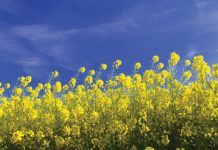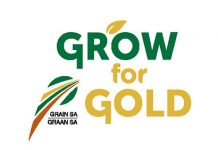October 2016
JANNIE DE VILLIERS, CEO: Grain SA
The unexpected outcome of the referendum in the United Kingdom (UK) to leave the European Union (EU) showed remarkable similarities with regards to the reasons for the support for a somewhat controversial nominee as presidential candidate of the Republican Party in the US.
Reading through the comments of the many analysts, I became aware of the similarities thereof with what was presented as the possible reasons for the political swing in the vote of our own municipal elections in August 2016.
Agricultural leaders in South Africa should take note of these reasons and start reacting thereon to avoid the surprising consequences that present themselves with angry voters. Many referred to these changes as a sea change – a notable transformation and significant change in the way society thinks and acts. This change is also being placed on equal footing with the Arab Spring of 2011. The Arab Spring caused the world to elevate the agricultural agenda in an effort to ensure that there will be enough food to feed the world in 2050. How should agriculture in South Africa react to the results of angry voters – voters angry about the status quo?
Anger and fear can easily lead to irrationality and have definitely led to an appetite for higher risk – it demands change. The status quo and current establishment/institutions are no longer acceptable. The current period of uncertainty is further extended and upped a notch or two. Liminality – a process that goes on within people when they are separated from their stable worlds and core values; a type of in-between world – is causing voters to act differently than normally expected. They expressed a reaction at the polls in line with their dissatisfaction with issues that drive their emotions.
The world is in fear and feels out of control when borders become more porous and immigration causes all sorts of social and economic problems. Locals see this as taking their jobs and acts of terrorism as threats to their lives. The reaction illustrate that people have a perception that there is safety in tribes; they want to protect their own wealth and living standards: Build a wall or exit! (‘Stronger in’ [the EU], ‘Stronger together’ [US Democrats] and ‘Together we can do more’ [ANC in South Africa], make way to ‘Embrace change’ [DA in South Africa] and risk by ‘Take back our country’ [US Republicans]). The consequences are numerous for globalisation and free trade – and eventually food security.
What were most surprising to me were the results issued by Google the days directly after the UK voted to exit the EU: The second most searched topic was ‘What is the EU?’ These reactions could easily have been seen in South Africa following the municipal election results: ‘Who is the DA?’
South Africa is not only bearing the scars of apartheid, but now also bears the scars of post-apartheid. The uncontrolled selfenrichment and unashamed corruption and nepotism by the political leaders caused the voters to react. The pool of have-nots in South Africa has just begun to be too large to defend the status quo.
In times like these radicals thrive! Radical change is needed. There is a disbelief in the ability of the current establishment to guide us out of this mess. What mess?
Well the mess is represented in the gaps between:
- Rich and poor.
- Educated and uneducated.
- Old and young.
- City-dwelling and rural.
- Voters and political leaders.
- Globalisation and tribalisation.
- Cadre deployment and merit.
The tribalisation referred to above does not necessarily reflect on tribes as we know it. It reflects on people sharing the same values, irrespective of race, gender or ethnic group.
Organised agriculture will soon face the same music from these voters – they could vote against an established organisation and the status quo where leaders are out of touch with what is going on at grassroots level or they will vote for change – even if it entails increasing risk.
I hope that we shall learn lessons from these events that are changing the world around us and react in a way to sustain our producers and our food production capacity in this country. Not just for ourselves, but also for the generations to come.
To swim downstream has never been my way of doing things. Withdrawing and practising ostrich politics is an easy way out, but I do not believe that it is the right option. Life has taught me to take the hill country – climb the mountains and kill the giants that stand in the way of progress and prosperity.
Publication: October 2016
Section: Grain SA

















